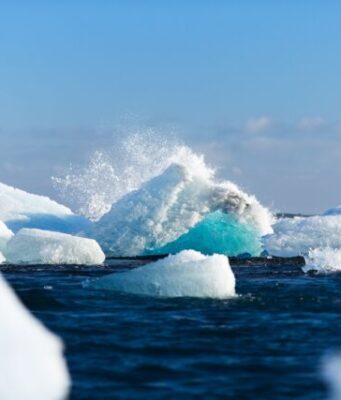Scientists agree that changes in land use such as deforestation, and not just greenhouse gas emissions, can play a significant role altering the world's climate systems. Now, a new study by researchers at MIT and Dartmouth College reveals how...
Lightning may strike less often in future across the globe as the planet warms, a scientific study suggests.
The research forecasts a 15 per cent drop in the average number of lightning flashes worldwide by the turn of this century,...
The world's largest rivers begin in glaciated mountain regions. However, climate change may cause many glaciers to disappear. Will water become scarce?
There are around 200,000 glaciers worldwide. They play a central role in the water cycle, particularly in the...
Removing fossil fuel subsidies would have only a small effect on CO2 emissions and renewable energy use, new research has shown. The largest emissions savings would be in oil and gas exporting countries, where fewer poor people would be...
The ozone layer - which protects us from harmful ultraviolet radiation - is recovering at the poles, but unexpected decreases in part of the atmosphere may be preventing recovery at lower latitudes.
Global ozone has been declining since the 1970s...
USC scientists have unlocked a new, more efficient pathway for converting methane - a potent gas contributing to climate change - directly into basic chemicals for manufacturing plastics, agrochemicals and pharmaceuticals.
In research published on Dec. 4 in the Journal of...
As more carbon dioxide enters the atmosphere, the global ocean soaks up much of the excess, storing roughly 30 percent of the carbon dioxide emissions coming from human activities.
In this sense, the ocean has acted as a buffer to...
University of Wyoming researchers led a climate study that determined recent temperatures across Europe and North America appear to have few, if any, precedent in the past 11,000 years.
The study revealed important natural fluctuations in climate have occurred over...
New research that analyzed more than 270 million years of data on animals shows that mammals and birds - both warm-blooded animals - may have a better chance of evolving and adapting to the Earth's rapidly changing climate than...
New research published today in Nature Geoscience has found that climate engineering that modifies the properties of the land surface in highly populated areas and agricultural areas over North American, Europe and Asia could reduce extreme temperatures there by...
While our planet's average annual temperature has increased at a steady pace in recent decades, there has been an alarming jump in the severity of the hottest days of the year during that same period, with the most lethal...


















